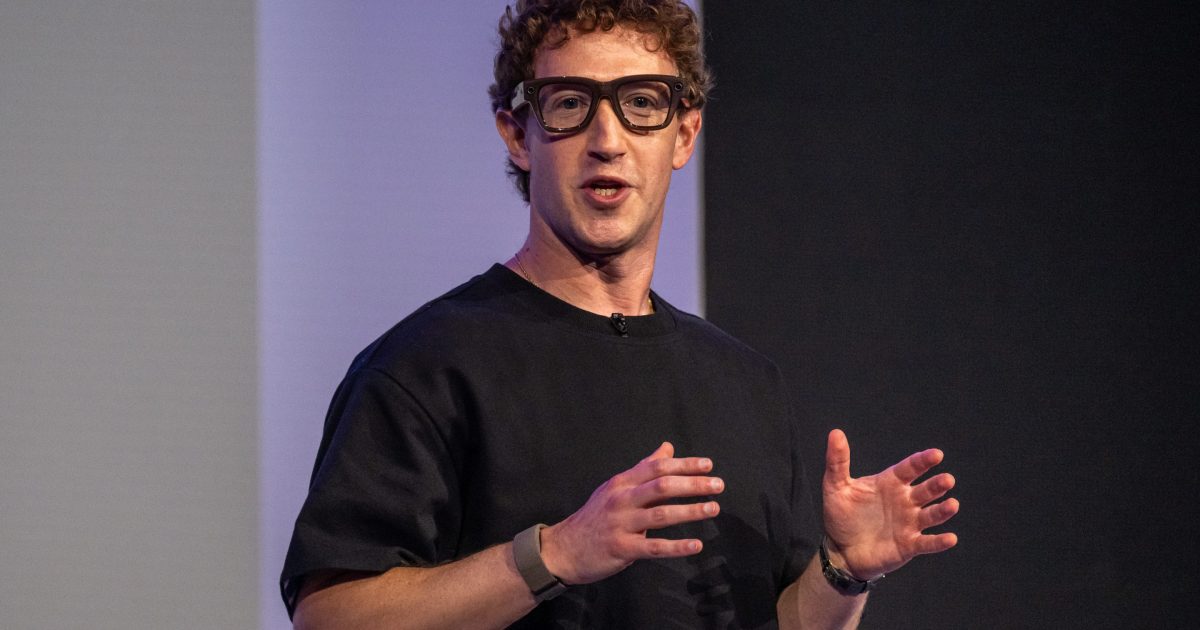New graduates are leaving college and heading into a tough labor market—entry-level roles are dwindling, managers are wary of hiring Gen Z candidates, and AI continues to automate more jobs. But Meta is actively on the hunt for fresh talent, and it’s willing to pay the big bucks for the brightest young minds.
The $1.8 trillion technology company has a few entry-level jobs on the market: a Full-stack software engineer, and multiple product software engineer roles. And lucky for Gen Z just getting their start in tech, the roles don’t require a decade of experience. To qualify, candidates only need a bachelor’s degree in a relevant field like computer science, computer engineering, or applied sciences.
Top candidates for the full-stack and one of the software engineer roles should also have completed a university-level course, internship, thesis, or 12 months of work in one of the following: PHP and Hack, C++, Python, react framework, coding issues, or large scale storage infrastructure or frameworks. The other iOS software engineer job necessitates a year of experience in skills like object-oriented software development, multithreading programming, and Linux or Unix.
It’s also a plus that these Meta roles come with envy-inducing salaries; they pay anywhere from $176,000 up to $290,000 annually, alongside other perks like bonuses, equity, and benefits. However, WFH-loving candidates won’t be able to clock in from their couches—each full-time role is in-person, whether that be working at Meta’s Washington or California offices.
What CEO Mark Zuckerberg is looking for in top talent
Candidates vying for the competitive spots could consider studying what Meta’s CEO Mark Zuckerberg says he looks for in talent.
The tech pioneer and Harvard dropout has revealed that skills outweigh a flashy college degree in his hiring philosophy—but it should be noted that these entry-level Meta roles still require a bachelor’s. Zuckerberg looks for job candidates who have mastered a skill and can apply it across business areas at the company. What they studied in school matters less than their ability to get things done and innovate.
“If people have shown that they can go deep and do one thing really well, then they’ve probably gained experience in the art of learning something and taking it to an excellent level, which is generally pretty applicable to other things,” Zuckerberg told Bloomberglast year.
Six-figure entry-level roles are welcome in a bleak entry-level job market
Meta’s entry-level roles are a welcome addition to a bleak Gen Z job market. Recent graduates were once promised that studying fields like computer science, coding, or engineering would guarantee them six-figure salaries after college. But now, AI automation has flipped everything on its head. Earlier this year, the Washington Post reported that computer-programmer employment dropped to its lowest level since the 1980s—one profession that has been hit hardest over the past few years.
Struggles aren’t limited to computer-programmer roles—tech companies have been shedding young staffers across the board since 2023. The percentage of Gen Z employees between the ages of 21 and 25 has been cut in half at technology companies over the past two years, according to a Pave study from this year. These young professionals accounted for 15% of the workforce at large public tech firms, like Meta, in January 2023; by August 2025, they only represented 6.8%. And the situation isn’t pretty at big private tech companies, either. During that same time period, the proportion of early-career Gen Z employees dwindled from 9.3% to 6.8%.
There seems to be a clear culprit that’s graying Silicon Valley’s workforce: businesses are being pressured to do more with less, and automate human jobs. Of course, the roles with the simplest tasks are the first to go, disproportionately affecting young hopefuls looking to start their professional lives. Matt Schulman, the founder and CEO of Pave who had early-career experience at Facebook (now Meta) and Microsoft, has witnessed this shift in his industry. While Meta has made headlines for poaching OpenAI and GoogleDeepMind staffers with $100 million signing-bonuses in the AI race, at its core, the company is known for chasing up-and-coming talent.
“Most public companies have fleshed out training programs that are squarely centered around new grad programs and university recruiting,” the Pave CEO, with early-career experience at Facebook and Microsoft, explains. “A company like Meta, their whole talent thesis was to go after universities, get the smart 21-year-olds, and then train them up.”
